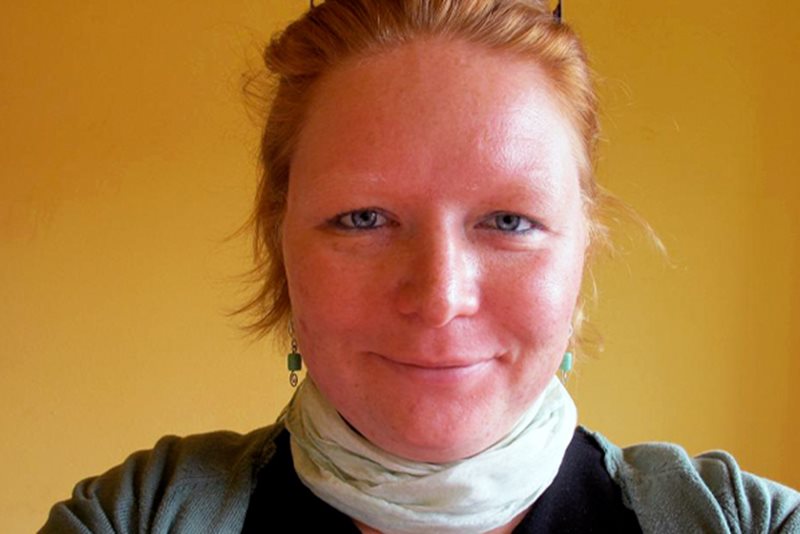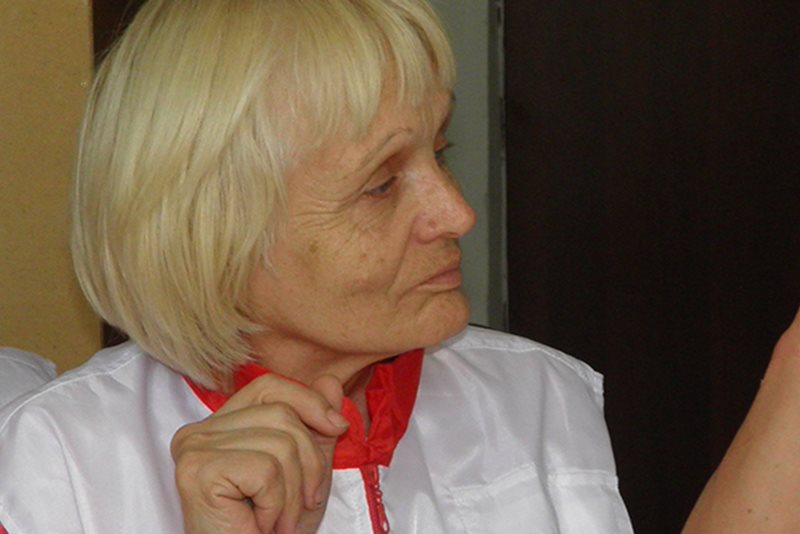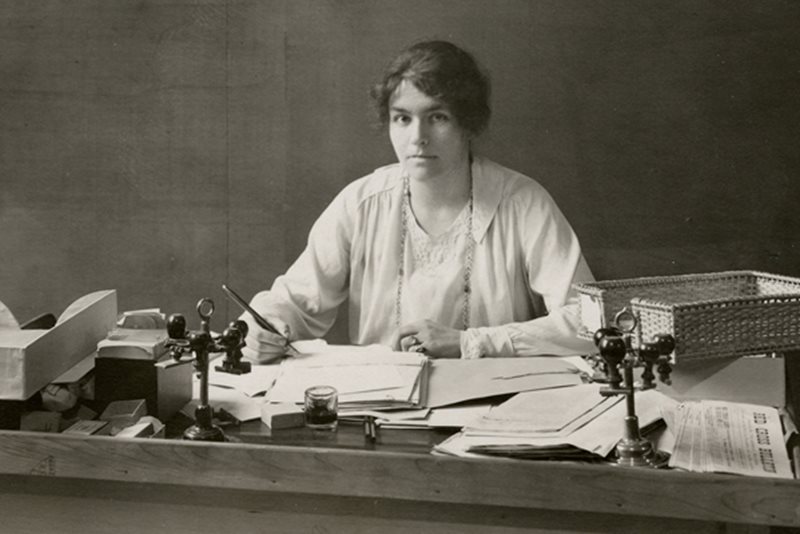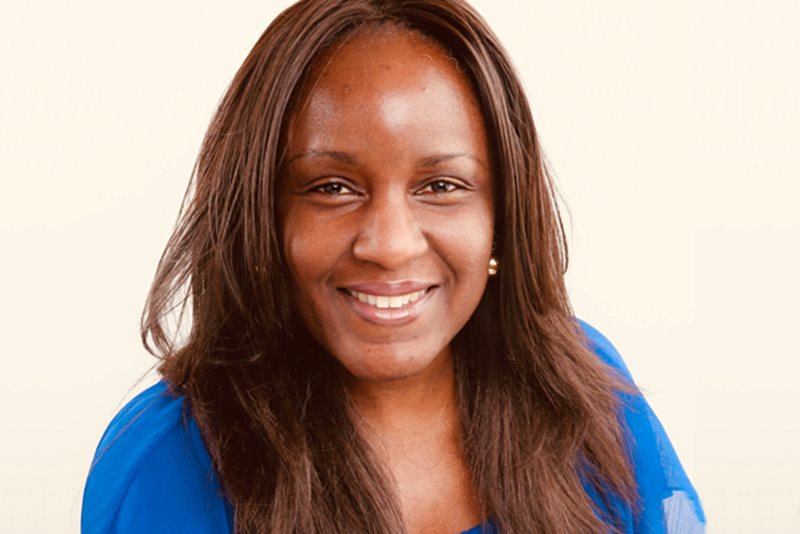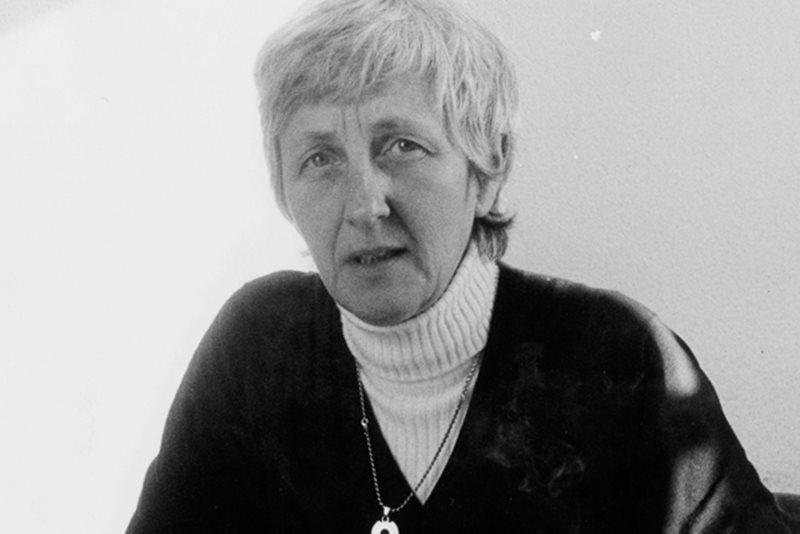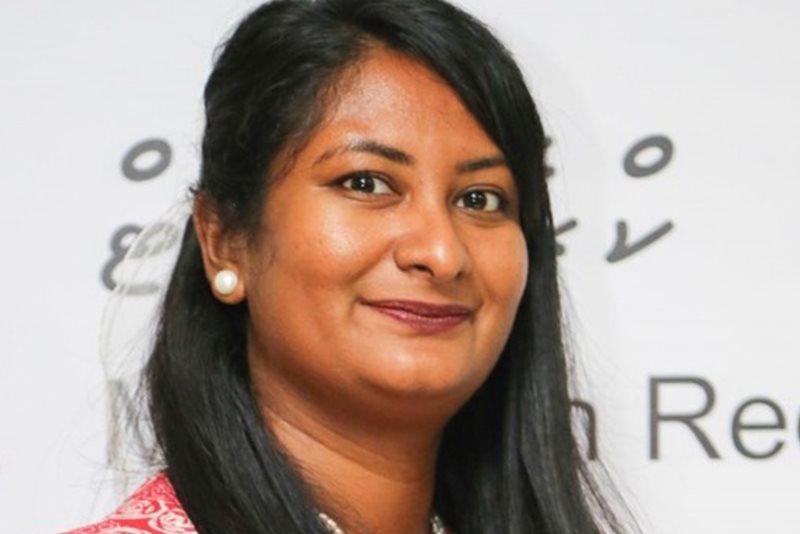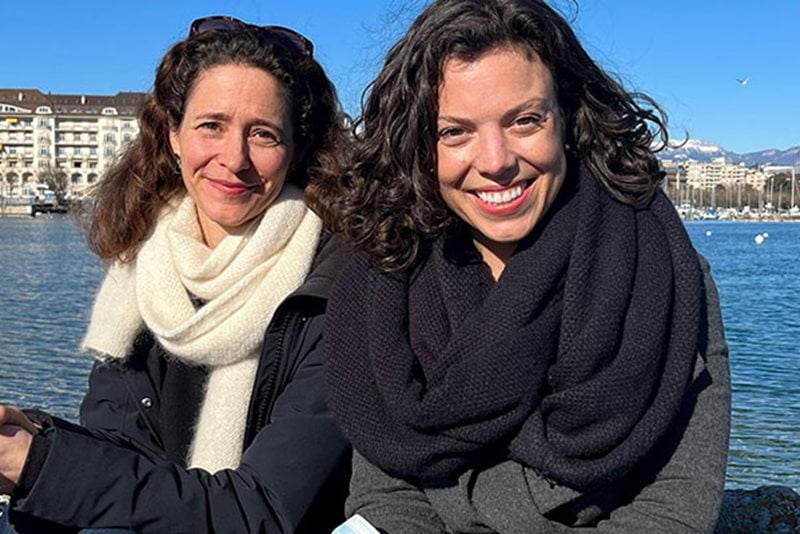

Catherine-Lune Grayson: “I came up with the idea when carrying out research on the consequences of converging climate risks and armed conflict in early 2019. Colleagues were witnessing dire humanitarian impacts and were calling for a clearer vision of our role and a better framework for action. Years ago, long before joining the ICRC, I had carried out consultations in Somalia on the way we worked, as humanitarian actors. We had used the 1994 Code of Conduct for the Red Cross Red Crescent Movement and NGOs in Disaster Relief as a basis for the discussions. It worked well because the Code of Conduct laid out clear and simple principles to guide our action. I wondered if we could develop something similar to frame our role in addressing the climate and environment crises. The IFRC was the obvious partner for this! “
– Tessa Kelly, IFRC“I soon saw the enormous opportunity and responsibility we had before us “
Tessa Kelly: “Since I started working on climate change in 2016 with the IFRC I felt that the humanitarian community had not been seeing climate change as a key “humanitarian” issue – that it was ‘just’ about the environment and for example, whether we rode our bikes to work, and not a core issue to our humanitarian mandate. That perception had been slowly changing in light of the growing list of climate-related disasters we were responding to, but there were still so many questions around what the roles and responsibilities of humanitarian actors are when it comes to climate change. The Charter was a timely initiative to help shape those answers and create a new community of motivated organisations wanting to take action. Yet I have to admit, when we first discussed the idea of the Charter, I was concerned that it could end up being another big global initiative that fails to deliver on the ground. But when we started talking to people, from such diverse perspectives and contexts, and consistently heard that the Charter was needed, that it could in fact make a real difference at all levels, I soon saw the enormous opportunity and responsibility we had before us. “
Catherine-Lune Grayson: “I had the immense pleasure of working closely with Tessa. In the midst of a pandemic that made everything feel rather bleak, this was an amazing experience of shared and inclusive leadership, in the sense that we co-led this, between the two of us, but also with many others, from within our institutions, from within the Movement and the Charter’s Advisory Committee, but also way beyond. We really wanted the Charter to be owned by the sector as a whole and inclusion was key to this. The whole process was really uplifting, as humanitarians across the world were passionate and engaged. As the Charter was opened for signature in May 2021, we felt that if there were 100 signatories by the end of 2021, we could call this a success. There were twice that number – organizations from over 80 countries have joined, local and international ones, big ones and small ones, Red Cross Red Crescent National Societies, NGOs, UN agencies – in addition to State supporters! “
– Tessa Kelly, IFRC“I always appreciated Catherine-Lune’s leadership style – honest, intelligent and unyielding”
Tessa Kelly: “While the consultation process was inspiring and uplifting - the process of drafting and redrafting the Charter to take into account inputs from hundreds of individuals and organizations was sometimes the opposite, especially given we were from different organisations ourselves. But this is where I always appreciated Catherine-Lune’s leadership style – honest, intelligent and unyielding on elements that were important to her/her organization, but incredibly positive and creative in finding new solutions that could work for everyone. I learnt a lot from the whole process and from all the team working on this about the importance of being a leader who is open and listens and respects different opinions, who can reach compromises but also knows when to stand firm.
What I’ve learnt from the Charter process is the value of seeking out opinions that may be different to your own, listening to people and building a sense of community, in order to really effect change. If we had sought to quickly finalize the charter with just our own text, perhaps the end result in terms of text may not have been too different, but the outcome in terms of influence and impact on the sector would have been vastly different. “
– Catherine-Lune Grayson, ICRC“We were modelling a different type of leadership, one that recognizes that we do better together”
Catherine-Lune Grayson: “I’d like to pick up on the question about challenges that women face in leading. I hope I have made it abundantly clear that the Charter is what it is because of shared leadership – and exemplary collaboration between the IFRC and the ICRC at a working level. To some extent, we were modelling a different type of leadership, one that recognizes that we do better together, including when it comes to taking decisions and “owning” projects. And as much as I don’t like labeling things masculine and feminine, this does feel like “feminine” leadership, one that we still need to embrace. “

7 young women for every 10 young men complete upper secondary school in low-income countries. If we want more future female leaders, we need to close the gender gap in education.




